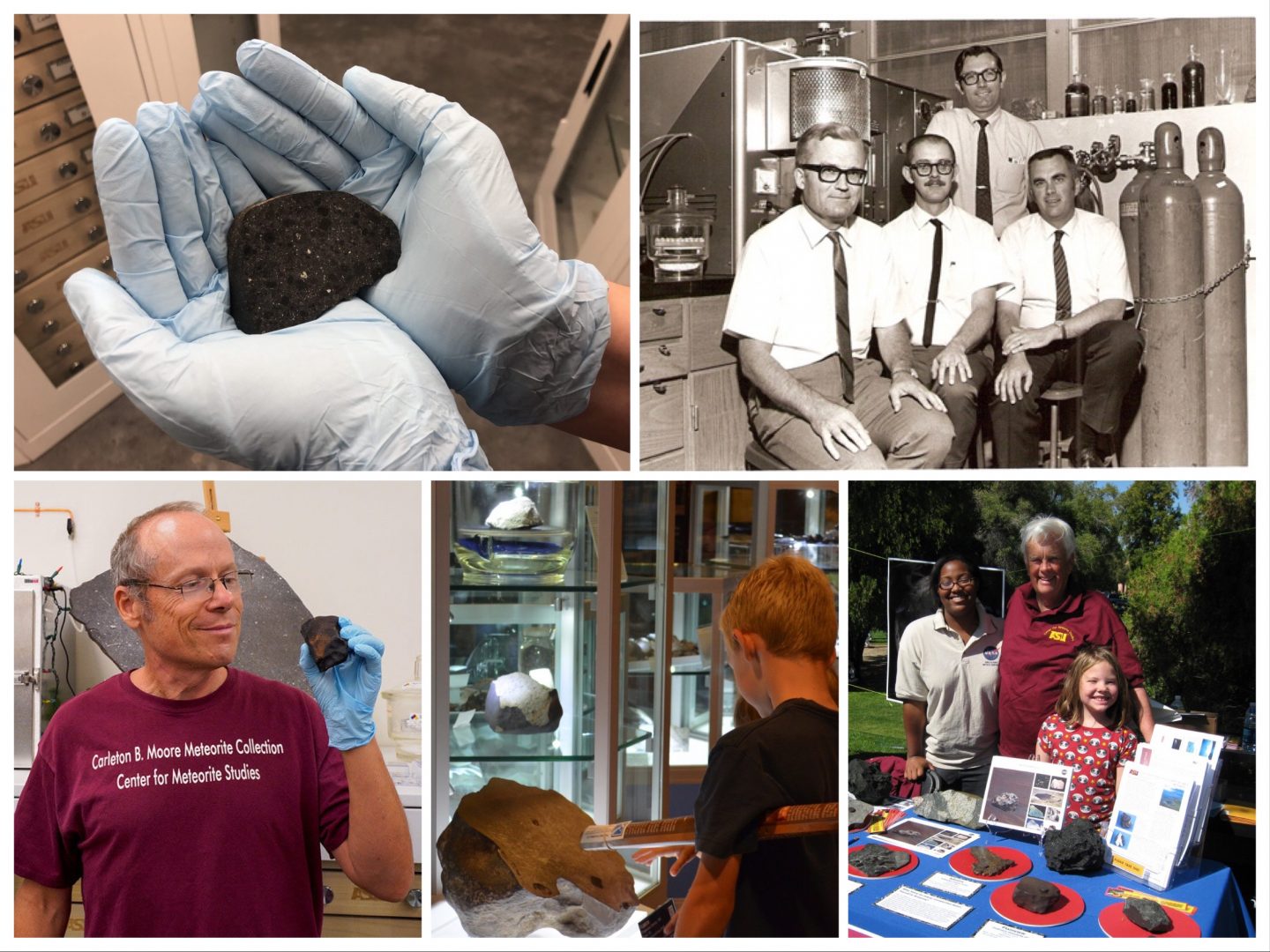BCMS 60
Since 1961, the Arizona State University Buseck Center for Meteorite Studies has amassed and preserved one the world’s largest meteorite collections to enable research in planetary science and cosmochemistry, and to inspire students, educators, and the general public to learn about the Solar System and our place in it.
Watch this space!
 All year, we’ll post stories of new research initiatives, exciting outreach programs, conservation and growth of the Center’s invaluable meteorite collection.
All year, we’ll post stories of new research initiatives, exciting outreach programs, conservation and growth of the Center’s invaluable meteorite collection.
We invite you to follow us on social media, and share your memories and photos of the Buseck Center for Meteorite Studies using #BCMS60.
Historic Center Research: MurchisonTo celebrate of 60 years of the Center for Meteorite Studies, we’re posting stories of historical Center events, new research initiatives, exciting outreach programs, conservation and growth of the Center’s invaluable meteorite collection. We invite you to follow us on social media, and share your memories and photos of the Center for Meteorite Studies using… |
Founded on philanthropyIn 1957, Sputnik’s launch put space exploration at the forefront of the American conscience. The following year, Harvey H. Nininger, the famous meteorite hunter and self-taught meteoriticist, sold a portion of his collection to the British Natural History Museum. The Coordinator of Research at Arizona State University, George A. Boyd, was familiar with Nininger’s collection… |
Researcher Spotlight: Devin SchraderGet to know Center researchers with this periodic feature! Dr. Devin Schrader is the Interim Director of the ASU Center for Meteorite Studies (CMS) and an Associate Professor in the School of Earth and Space Exploration (SESE). His research focuses on the study of primitive meteorites that have remained relatively unaltered since they formed in… |
Explore 4.5 billion years of Solar System historyTake a virtual tour of the Center for Meteorite Studies collection, and explore 4.5 billion years of Solar System history! |
Water on MarsCenter Assistant Research Scientist Dr. Jemma Davidson is lead author of a new paper on Mars' water, published in the journal Earth and Planetary Science Letters. Davidson’s recent work involves tracing magmatic volatiles, specifically hydrogen, in minerals in meteorites and terrestrial analogues to learn about how the terrestrial planets gained their water. In this new… |